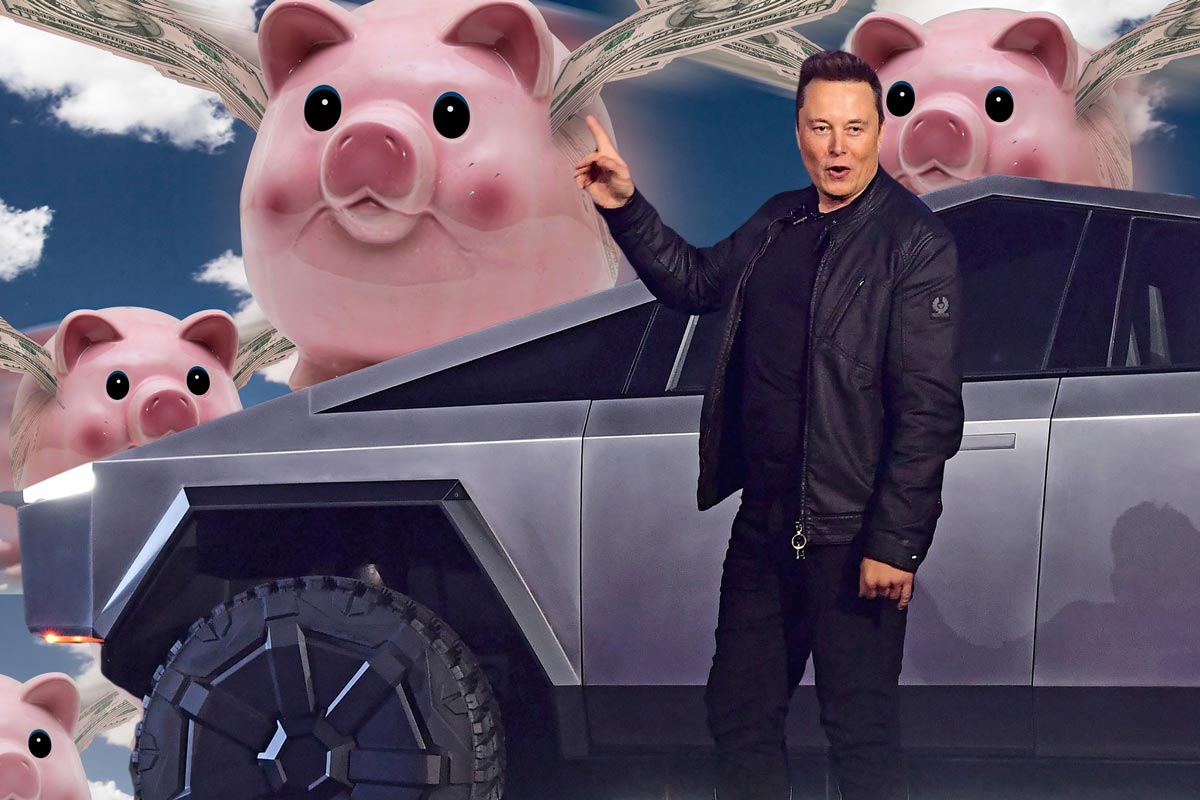In January of 2021 Elon Musk became the second person to be publicly recognized as having a fortune of over $200 billion. The first person to get credit for this “feat”? Amazon’s Jeff Bezos. The all time high for Musk’s worth, as calculated by Bloomberg, was $340 billion, which was tallied at that absurd figure in November of 2021.
This amount coincided with the all time high for the stock of Tesla – which has since dropped its market cap by $880 billion while falling around 73% from the peak.
Again the $200 billion figure crosses Elon Musk’s path, this time on the downside, as he became the first person in history to lose $200 billion. Doing the simple math (which could be single dollars but in this case in in billions) in a bit over a year his fortunes changed to the tune of $340 billion > minus $200 billion leaving him with a “paltry” $137 billion to squeak by on.
Of course, this still leaves him with enough scratch to be the #2 richest person in the world after Bernard Arnault, the LVMH French luxury goods titan.
A little refresher on Elon Musk’s journey
As founder and CEO of SpaceX, Tesla, Neuralink, and The Boring Company, Elon Musk has made significant contributions to the development of electric vehicles, space exploration, and artificial intelligence. Musk has also been involved in other ventures such as PayPal and SolarCity.
In the early 2000s, Musk was primarily known for his role as CEO of PayPal, an online payment company that he co-founded in 1998. PayPal was acquired by eBay in 2002 for $1.5 billion, and Musk’s net worth at the time was estimated to be around $100 million.
After the sale of PayPal, Musk turned his attention to SpaceX, a company he founded in 2002 with the goal of reducing space transportation costs and enabling the colonization of Mars. In 2008, SpaceX became the first privately funded company to send a spacecraft to the International Space Station, and in 2012, it became the first private company to send and dock a spacecraft with the ISS. These milestones significantly increased the value of SpaceX and contributed to Musk’s growing net worth.
In the mid-2000s, Musk also became involved in the development of electric vehicles through his involvement with Tesla, a company he co-founded in 2003. Tesla’s first production vehicle, the Roadster, was released in 2008 and received widespread acclaim for its performance and range. In the years that followed, Tesla released several more electric vehicles, including the Model S, Model X, and Model 3, which have all been successful in the market.
Musk’s net worth experienced significant growth in the 2010s, particularly in the last few years. In 2020, Tesla’s stock price soared, and as a result, Musk’s net worth increased by over $100 billion. In 2021, his net worth reached over $200 billion, making him one of the wealthiest people in the world.
In addition to his work with SpaceX and Tesla, Musk has also been involved in other ventures, including Neuralink, a company that develops implantable brain-machine interfaces, and The Boring Company, which focuses on tunnel construction and transportation. These ventures have also contributed to Musk’s net worth.
If his recent purchase of Twitter and the attendant brouhaha played any role in the Tesla crash and his turn of fortunes is unclear. He denies that anything other than inflation is at fault.
Elon Musk’s net worth has fluctuated significantly over the years, but it has experienced significant growth in recent years, particularly in 2020 and 2021. His success is largely due to his involvement in companies such as SpaceX, Tesla, Neuralink, and The Boring Company, which have all had a significant impact on various industries.
Please help keep us publishing the content you love
Lynxotic may receive a small commission based on any purchases made by following links from this page
- What if “Non-human Biologics” are Watching?
- ‘Most Significant Charges Yet’: Trump Indicted for Trying to Overturn 2020 Election
- But what am I?’ Pee-wee Herman creator and star, Paul Reubens dead at 70
- The Congressional Hearing On UFOs Confirmed the Existence of Aliens? Maybe
- The Earthly Frontier: Building a Sustainable Future at Home
